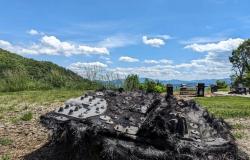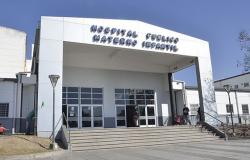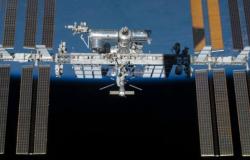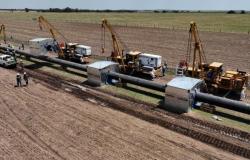
Travel to space, even of short duration, is a challenge for health, with changes at many levels, although much of it is normalized upon return, according to twenty new studies that include data from the first crew composed only of astronauts not professionals.
LOOK: What would happen to our bodies if we died in space
A hundred scientific institutions participated in the studies published by several journals of the Nature group, whose results represent the largest compendium of data on aerospace medicine and space biology.
Traveling to space induces molecular, cellular and physiological changes and poses countless biomedical challenges to the human body, which will become increasingly relevant as more people venture out.
Researchers have used data from stays of up to a year on the International Space Station (ISS), but the novelty is the analysis of data collected on Inspiration 4, the first private mission with a crew of only civilian astronauts.
In 2021, two women and two men spent three days 590 kilometers from Earth (about 200 above the ISS), where they carried out various experiments and took samples of blood, saliva, feces or skin biopsies.
That short-duration mission in low Earth orbit caused changes at multiple levels, some of which reflected those of longer duration flights, although “it did not pose a significant risk to the health of the crew,” according to one of the investigations.
Back to normal
Most changes in telomeres (ends of chromosomes), blood chemistry, proteins or gene expression return “to normal within a few months” after returning, Christopher Mason highlighted in a virtual press conference. , from the New York School of Medicine, signatory of several articles.
Manson said that this return to basic levels occurred in a crew “who are not especially Olympic athletes nor who train for ten years to go to space.”
Although 95% of markers return to their baseline value in the months following the end of the mission, some proteins, genes and cytokines appear to be activated only during recovery and persist for at least three months.
This suggests that readaptation to Earth activates a series of reparative mechanisms that help recover, at least in part, the physiological stress imposed by exposure to the space environment.
The physiological changes that initially impact the body the most occur during launch and re-entry to Earth, due to the variation in gravity, Mexican Emmanuel Urquieta, medical director of the American Translational Research Institute for Health, told EFE. Space (TRISH).
The article in which Urquieta collaborated focused on the first phases of adaptation to flight at an anatomical, cellular, physiological and cognitive level, the latter parameter in which “there were no significant changes.”
The first are the neurovestibular changes, which have to do with orientation, causing dizziness and vomiting that affect 80% of people, then – he added – those related to blood and fluids that are redistributed to the thorax, neck occur. and the head.
Urquieta pointed out that the study sample is small, four people, and that more data is needed on the same parameters in future flights.
The immune system and old age
Other studies focused on the effects of weightlessness on the immune system, combining data from simulations, astronauts and mice on the ISS. The results point to the reactivation of latent viruses or infections, even on short flights.
The different cells of the immune system in the peripheral blood are shaped by microgravity, especially lymphocytes and monocytes, which are the main protagonists of immunity.
This work, signed among others by the Buck Institute for Research on Aging (USA), investigated possible compounds to reverse the effects of microgravity and pointed to quercetin as promising to mitigate these damages.
The changes observed in the immune system during space travel are similar to those of aging on Earth, so this knowledge can be used to design interventions to combat the immune dysfunction that accompanies old age.
Telomeres (related to cellular aging) are the subject of other research, because although it had already been described that they lengthen in space, it was not known when this occurred.
Colorado State University (USA) researcher Susan Bailey indicated at the press conference that, with data from Inspiration 4, they verified that the telomeres of all of them had grown in a trip of just three days.
Bailey specified that upon return these “are drastically shortened” and the overall result is that “they are still shorter than when the astronaut began the trip.”
Kidney care
Among the studies, one led by University College London, warns that the structure and function of the kidneys is altered by radiation, both solar and galactic (that of deep space), to a point that could put at risk a mission to Mars.
The research simulated with mice exposure to galactic radiation similar to what would be suffered on a trip to Mars and the result was permanent damage and loss of kidney function.
Current aerospace medicine frameworks lag behind advances in precision medicine on Earth, underscoring the need to rapidly develop space medicine databases, tools and protocols for upcoming lunar, Martian and satellite missions. exploration.
The data from these investigations are part of a Space Medical and Omic Atlas (SOMA), an integrated repository with data from a wide range of space missions, as well as the TRISH ‘EXPAND’ database.





